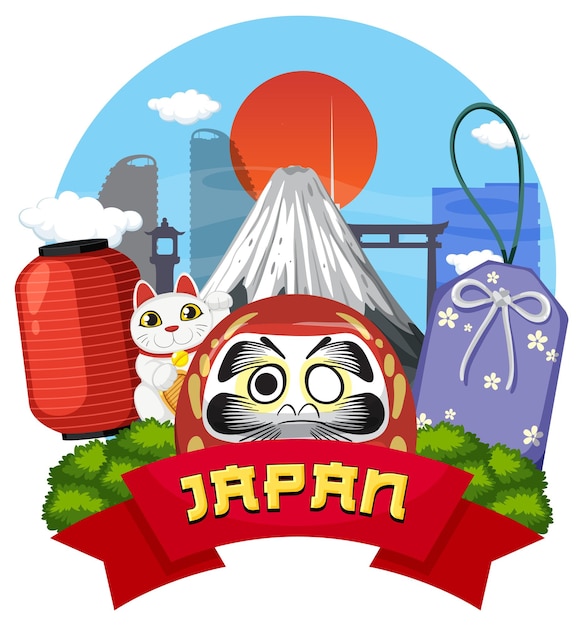Fascinating Facts about Japanese Culture

Japan’s traditional arts and crafts, like origami and calligraphy, showcase the country’s rich cultural heritage.
Tea ceremonies, known as chanoyu, are an important cultural practice in Japan.
Kimonos, the traditional Japanese clothing, have intricate designs and are worn on special occasions.
Japan is famous for its cherry blossoms, known as sakura, which symbolize the transient beauty of life.
Sumo wrestling is a traditional Japanese sport that dates back centuries.
The Japanese have a deep respect for nature, with many traditional festivals celebrating the changing seasons.
Traditional Japanese architecture, such as the pagodas and temples, are famous for their intricate wooden structures.
Japanese cuisine is diverse and includes popular dishes like sushi, tempura, and ramen.
Japan is home to the world’s oldest and largest fish market, Tsukiji Fish Market in Tokyo.
Anime and manga are a significant part of Japanese pop culture and have gained a global following.
Japanese gardens are meticulously designed and incorporate elements like water, stones, and plants to create a serene atmosphere.
The art of bonsai, which involves growing miniature trees, originated in Japan.
Geisha, skilled female entertainers, are an iconic symbol of Japan’s traditional culture.
Karaoke, a form of entertainment where people sing along to popular songs, originated in Japan.
Japanese trains are known for their punctuality and efficiency.
Fascinating Facts about Japanese Culture part 2
Haiku, a form of traditional Japanese poetry, consists of three lines and focuses on capturing a single moment.
The Japanese language has three writing systems: hiragana, katakana, and kanji.
The Shinkansen, or bullet train, is one of the fastest and most advanced railway systems in the world.
Onsen, or hot springs, are a popular way for people to relax and rejuvenate in Japan.
Japan has a well-developed and extensive public transportation system, making it easy to explore the country.
The traditional art of kabuki involves dramatic, stylized performances with elaborate costumes and makeup.
Japan has a strong sense of community and emphasizes group harmony, known as wa.
Exhibition of fireworks, known as hanabi, is a popular summer tradition in Japan.
The Japanese delicacy, fugu, is a pufferfish that requires highly skilled chefs to prepare due to its poisonous nature.
Manga cafes, known as manga kissa, are popular hangout spots for Japanese youth to read manga and relax.
Japan is known for its high-tech gadgets and innovative technology.
Hanami, the act of viewing cherry blossoms, is a cherished tradition during springtime in Japan.
Japanese traditional theater, like Noh and Kabuki, has a long history and continues to be performed today.
Japan is famous for its high-quality and efficient manufacturing processes, known as kaizen.
The Japanese art of flower arrangement, called ikebana, emphasizes simplicity and asymmetry.
Karate, judo, and kendo are martial arts that originated in Japan and have gained international popularity.
Japan has a strong tea culture, with different types of tea ceremonies and tea-drinking rituals.
The Japanese value cleanliness and have a tradition of taking off their shoes before entering homes or certain establishments.
Onigiri, rice balls filled with various fillings and wrapped in seaweed, are a popular and convenient snack in Japan.
Japan has a unique mix of ancient traditions and modern technology, creating a harmonious blend of the past and the present.
The Japanese value politeness and respect, with bowing being a common form of greeting.
Maneki-neko, or the beckoning cat, is a popular talisman believed to bring good luck and fortune in Japan.
Japanese street fashion, like Harajuku and Lolita fashion, is known for its vibrant and eclectic styles.
Origami, the art of paper folding, is a popular pastime in Japan and has inspired many modern design concepts.
Japan has over 200,000 vending machines, selling a wide range of products, including hot food and even underwear.
The traditional Japanese art of flower arranging, called ikebana, emphasizes the beauty of simplicity.
In Japan, it is considered impolite to blow your nose in public and is more common to use a handkerchief or tissue instead.
Japan is famous for its meticulous attention to detail, seen in areas such as sushi preparation and traditional crafts.
The Japanese concept of omotenashi means wholehearted hospitality and making guests feel welcome and comfortable.
Traditional Japanese music, such as gagaku and shamisen, use unique instruments and have a distinctive sound.
